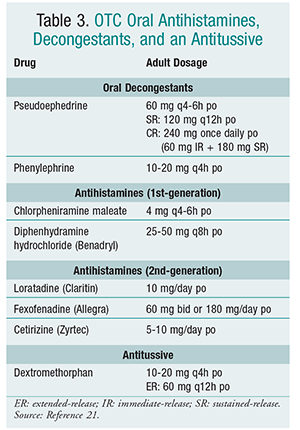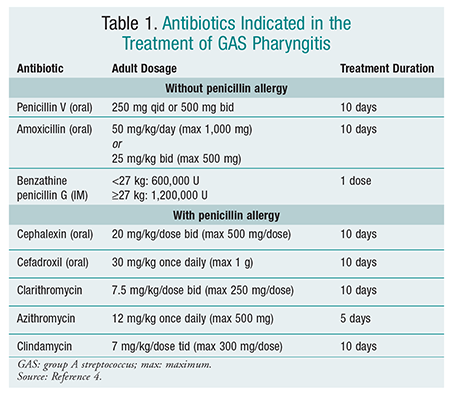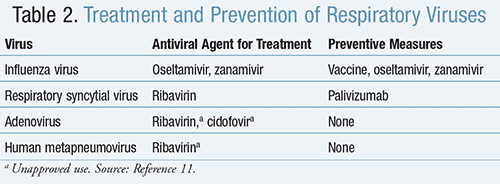A respiratory viral infection refers to a virus that specifically affects the upper or lower respiratory tracts or both. Viral Upper-Respiratory Infection Treatment.
 Upper Respiratory Infection Symptoms Causes Treatment Prevention
Upper Respiratory Infection Symptoms Causes Treatment Prevention
Antibiotics should be given only when secondary bacterial infections develop.

Viral respiratory infection treatment. Viruses are the most common cause of respiratory tract infections RTIs yet in contrast to the plethora of antibiotics available for the treatment of bacterial RTI until very recently only three agents were widely approved for the treatment of viral RTIs. Treatment of viral respiratory infections is usually supportive. Antibiotics are rarely needed to treat upper respiratory infections and generally should be avoided unless the doctor suspects a bacterial infection.
Antibacterial drugs are ineffective against viral pathogens and prophylaxis against secondary bacterial infections is not recommended. URIs are mostly treated for relief of symptoms. They account for 35 of inpatient antibiotic prescribing.
In acute respiratory viral infections the symptoms of intoxication are practically absent the person does not shiver and does not sweat there is no severe headache eye pain photophobia dizziness body aches and working capacity remains. URIs may resolve without treatment or the symptoms may be mild and easy to treat at home. In these populations approximately 5 of cats with signs of upper respiratory tract infections and 15 of cats that appear normal may harbor B.
A viral infection cannot be treated with antibiotics. Bronchiseptica is a bacterium that commonly causes infections of the upper respiratory tract of cats housed in high-density populations such as in shelters and breeding catteries. Nasal suction for infants.
Children with respiratory tract infections need additional rest and should maintain normal fluid intake. Based on the theory of traditional Chinese medicine mix-using herbs provide a synergistic benefit on preventing and healing respiratory tract infections. Doing so actually furthers the drug resistant antibiotic health crisis.
The evidence from pre-clinical and clinical studies with Andrographis paniculata Eleutherococcus senticosus Glycyrrhiza spp Panax spp Rhodiola rosea Schisandra chinensis Withania somnifera their combination products and melatonin suggests that adaptogens can be useful in prophylaxis and treatment of viral infections at all stages of progression of inflammation as well as in aiding recovery of the organism by i modulating innate and adaptive immunity ii anti-inflammatory. Using a bulb syringe to aspirate nasal secretions may promote drainage and comfort. Acetaminophen or nonsteroidal anti-inflammatory drugs NSAIDs such as ibuprofen can be given for fever and aches.
Antibiotics are not necessary and do not help treat viral respiratory tract infections. To relieve nasal congestion suction gently with a blunt-tipped bulb syringe before feedings and sleep. Bacterial infections can be treated with an antibiotic.
Some people benefit from the use of cough suppressants expectorants vitamin C and zinc to reduce symptoms or shorten the duration. Simple techniques such as proper handwashing and covering the face while coughing or sneezing may reduce the spread of respiratory tract infections. Therefore prevention is the best method to ward off harmful respiratory infections.
Amantadine and rimantadine for influenza A and ribavirin for respiratory syncytial virus RSV infectionand amantadine was first marketed in 1966. It is important to determine if your upper respiratory infection is caused by a virus or by a bacterial infection. Suspected respiratory infections are the most common indication for antibiotics in hospitalized patients.
Use nasal saline before suctioning to help loosen secretions. With the flu a bad cold and nasal congestion are absent this is the main symptom of ARVI. Many commercial herbal medicines containing one or more compounds have been successfully applied to prevent and treat viral infections of.
However up to one-third of antibiotics prescribed for pneumonia may be unnecessary in many cases because the pneumonia is viral rather than bacterial. Preventing acute respiratory infection Most causes of an acute respiratory infection arent treatable. We typically get a respiratory viral infection through the mouth or nose.
In the current paper we discuss the potential role of probiotics in the treatment of viral respiratory infections including the COVID-19 disease as major public health crisis in 2020 and influenza virus infection as well as treatment of neurological disorders like multiple sclerosis and other mental illnesses. Infections spread through oral and nasal secretions and can. However these infections can cause more serious symptoms.
Upper Respiratory Infection Treatment Human Anatomy
 Facts About Upper Respiratory Tract Infections Urti
Facts About Upper Respiratory Tract Infections Urti
/upper-respiratory-infection-overview-4582263-5c7016c2c9e77c000149e4ae.png) Upper Respiratory Infection Uri Overview And More
Upper Respiratory Infection Uri Overview And More
 Antibiotic Use In Acute Upper Respiratory Tract Infections American Family Physician
Antibiotic Use In Acute Upper Respiratory Tract Infections American Family Physician
 Reducing Inappropriate Antibiotic Prescribing For Acute Respiratory Tract Infections
Reducing Inappropriate Antibiotic Prescribing For Acute Respiratory Tract Infections
 Alternative Treatment In Upper Respiratory Tract Infections Prof
Alternative Treatment In Upper Respiratory Tract Infections Prof
 Upper Respiratory Tract Infection Wikipedia
Upper Respiratory Tract Infection Wikipedia
 Reducing Inappropriate Antibiotic Prescribing For Acute Respiratory Tract Infections
Reducing Inappropriate Antibiotic Prescribing For Acute Respiratory Tract Infections
 Viral Respiratory Infection Vri
Viral Respiratory Infection Vri
 Home Remedies For Upper Respiratory Infections Top 10 Home Remedies Upper Respiratory Infection Chest Congestion Remedies Allergy Remedies
Home Remedies For Upper Respiratory Infections Top 10 Home Remedies Upper Respiratory Infection Chest Congestion Remedies Allergy Remedies
 Pathogenesis Of Viral Respiratory Infection Intechopen
Pathogenesis Of Viral Respiratory Infection Intechopen
 Viral Respiratory Tract Infection Page 3 Line 17qq Com
Viral Respiratory Tract Infection Page 3 Line 17qq Com
 Prevention And Management Of Respiratory Viruses
Prevention And Management Of Respiratory Viruses
 Antibiotic Use In Acute Upper Respiratory Tract Infections American Family Physician
Antibiotic Use In Acute Upper Respiratory Tract Infections American Family Physician

No comments:
Post a Comment
Note: Only a member of this blog may post a comment.